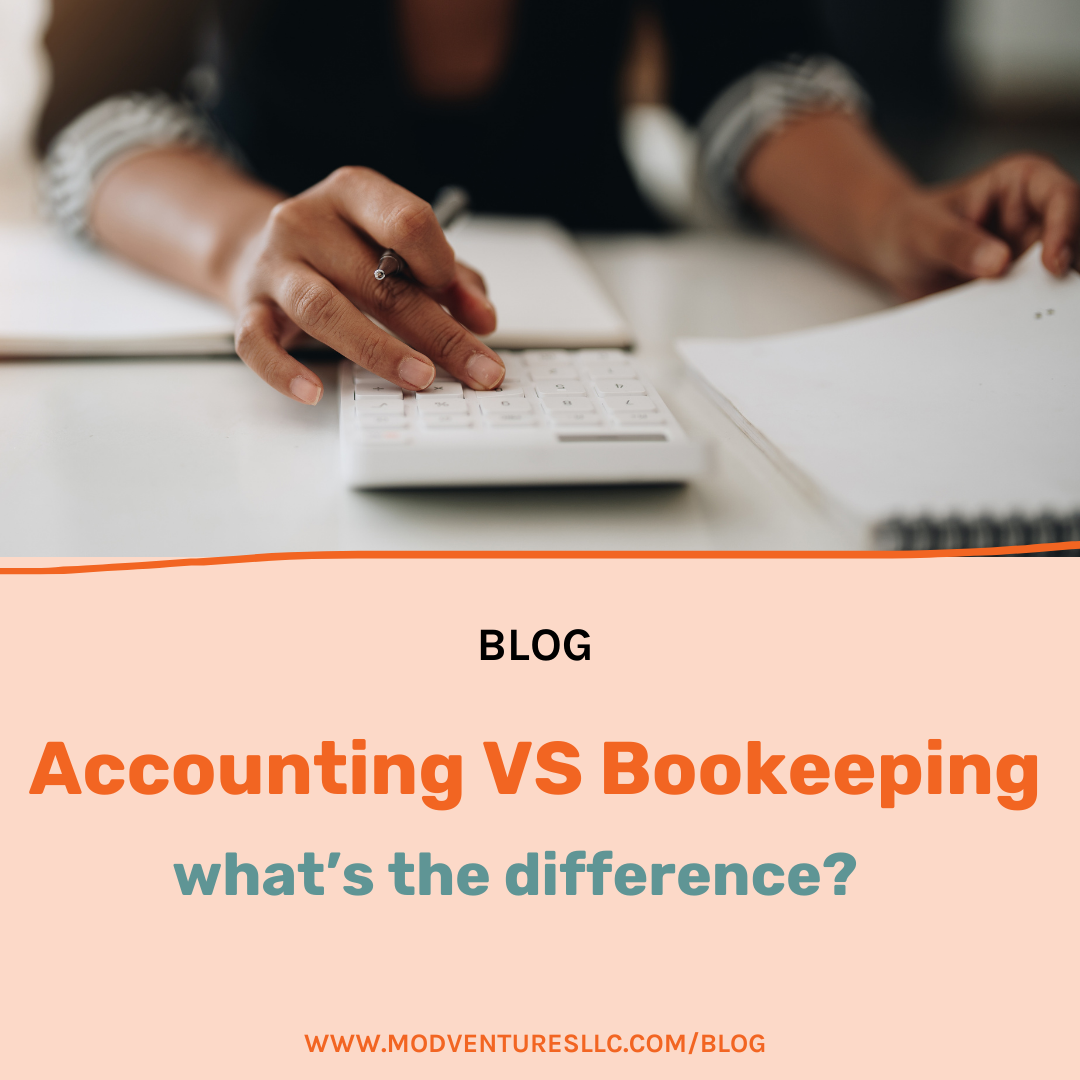By: Gabrielle Luoma CPA, CGMA
By: Gabrielle Luoma CPA, CGMA
Understanding accounting and bookkeeping roles is crucial for any small business owner or organization striving for financial clarity and compliance. While these two financial functions are closely related and often overlap, they are important in managing your finances effectively.
Let’s examine the main differences between accounting and bookkeeping and explore why each is vital to your business’s success.
What is Accounting?
Accounting is a comprehensive and systematic process of recording, analyzing, summarizing, and reporting a business’s financial transactions. It provides insights into a business’s financial health and helps stakeholders make informed decisions. Accountants interpret and classify financial data to create reports that offer snapshots of a business’s financial status.
Accounting involves preparing to adjust entries (like accruing expenses outstanding or prepayments) and producing financial statements that reflect a company’s financial operations to external parties such as investors, regulators, and tax authorities. The role of accounting extends into areas such as tax preparation, financial forecasting, and strategic planning for growth and efficiency.
For a deeper look into what you can outsource in accounting, consider exploring MOD VENTURES LLC’s services for outsourcing accounting tasks, which can streamline your business processes and improve financial accuracy.
What is Bookkeeping?
Bookkeeping is the practice of regularly recording and organizing all financial transactions in a systematic manner. It is fundamental to ensure that accurate and up-to-date financial information is available for accounting purposes.
Bookkeepers typically handle the day-to-day financial tasks such as recording financial transactions in the general ledger, managing invoices, maintaining ledgers, and reconciling bank statements.
Effective bookkeeping is essential for small business owners as it ensures that records of all financial transactions are accurate, comprehensive, and easy to access. This is crucial for routine financial activities and serves as the basis for the more analytical tasks of accounting.
For small businesses considering upgrading their bookkeeping practices, MOD VENTURES LLC offers online bookkeeping services that can help streamline financial processes and maintain accurate records.
Accounting vs. Bookkeeping: What’s the Difference?
While bookkeeping and accounting share common goals, they involve different processes and serve different purposes within a business. Bookkeeping is primarily concerned with the accurate recording of financial transactions. This role forms the foundation of the accounting process, which involves interpreting, classifying, analyzing, reporting, and summarizing financial data.
Bookkeeping is a part of accounting, but accounting goes several steps further to provide more in-depth insights into a business’s financial outcomes. Accounting uses the information provided by bookkeepers to produce financial models.
While bookkeepers can maintain daily transaction records, accountants use these records to provide financial projections and strategies for the future health of the business.
Do You Need an Accountant or Bookkeeper? Or Both?
Whether you need an accountant or a bookkeeper—or both—depends largely on your business size, lifecycle stage, and financial complexity. For most small businesses, having a bookkeeper regularly and an accountant for more complex audits, financial analysis, or strategic advice works well.
If you’re unsure about what level of financial management you need, MOD VENTURES LLC can help you determine the right services to keep your finances in order and your business in compliance. Whether it’s day-to-day bookkeeping or comprehensive accounting strategies, ensuring you have the right support is key to your business’s success.
You May Also Love
CLOSE






